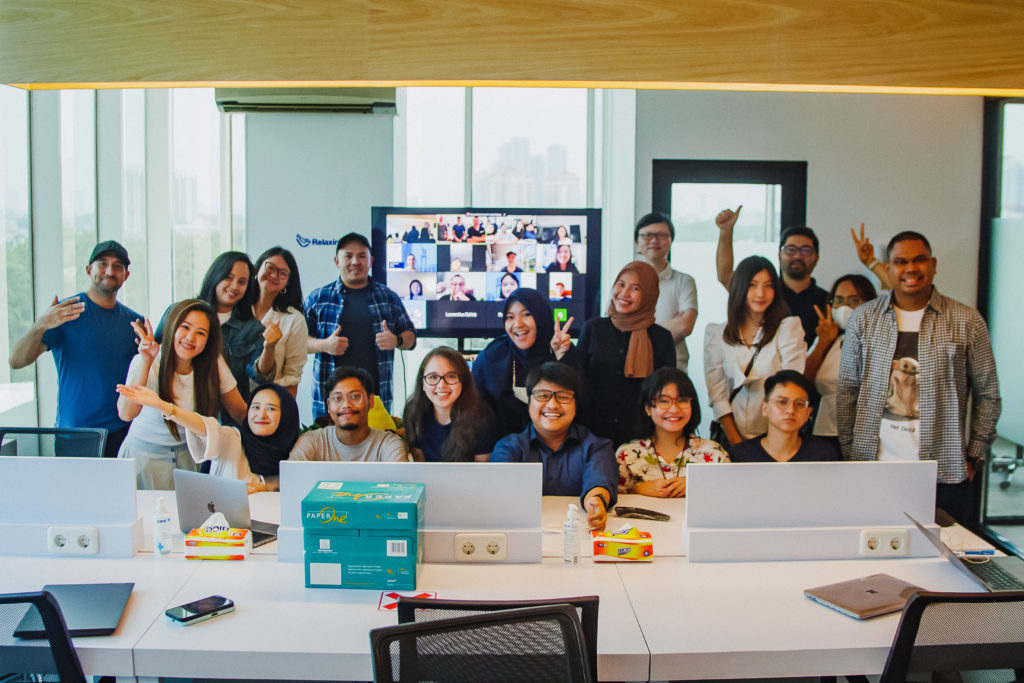“Banking the unbanked” has long been a catchphrase in the fintech sector of Southeast Asia, a region that is home to 290 million people who are not part of the conventional banking system. In response, tech unicorns such as Grab and GoTo, along with fintech developers, financial institutions, and local governments have been rewiring the ways financial services are offered.
Fintech products have become widely used in the last two years. Consumer e-wallet usage jumped 45% compared to pre-pandemic times. In particular, e-wallet transaction volume is expected to increase over 200% by 2025, according to a report by Google, Temasek, and Bain & Company.
While cash isn’t going away anytime soon, the rapid growth in digital payments underpins a fundamental change in the region. Open finance solutions are leading the region into the next stage of financial inclusion.
“Open finance refers to technology products and policies that allow customers to access financial services from qualified third-party providers. It is the infrastructure, technology, and the data standards that allow consumers to link their bank accounts to your GrabPay wallet,” Todd Schweitzer, founder and CEO of Indonesia-based open finance developer Brankas, explained to KrASIA.
Consent-driven data sharing underpins open finance, so that startups like Brankas can develop APIs for tech firms or financial institutions to access user data, and most importantly, build a variety of fintech-related products that may cater to anyone, including unbanked and underbanked consumers.

Brankas, which landed USD 20 million in a Series B round led by Insignia Ventures Partners on January 5, is one of the fintech upstarts that makes the sharing of financial data easier. Founded in 2016, one of the firm’s unique value propositions is its partnerships with banks across the region.
With the fresh capital, the firm is set to deepen its market reach by linking up with digital banks and fintech firms in Vietnam and Bangladesh. So far, the firm has worked with more than 40 financial institutions and 100 tech firms, with operations in Indonesia, the Philippines, and Thailand.
Fintech startups thrive
Other open finance upstarts including Hong Kong-based Finverse, Singapore-based Finantier, and Indonesia-based Brick. All of them were founded in 2020, when there were many speed bumps in the regional economy.
“During the pandemic, I was talking to some Gojek drivers in Jakarta. They were telling me how hard it was for them to get loans to buy a bike to drive for Gojek. I asked why they did not go to a bank or fintech firms [for loans], and they said the bank and fintech firms wouldn’t help them, because they don’t have a credit history,” Keng Low, co-founder of Finantier, told KrASIA.

To solve the pain points, Finantier offers credit scoring, account aggregation that allows businesses to build customer profiles from both financial and non-financial sources, as well as payment initiation solutions that enable money transfers via licensed payment gateways.
The firm differentiates itself from the competitors by focusing beyond banks. In December 2021, it was officially recognized by the Indonesian Financial Services Authority, OJK, as a digital financial innovation provider in the credit-scoring category.
“Competition is something that we thought about very early on. E-wallets and banks do not want to become open finance providers because of the complexity involved. We connect to telcos, e-commerce firms, and mobile wallets, which differentiates us from other players,” said Low.
Unlike Brankas and Brick, which operate under a pay-per-usage model, Finantier offers a product-as-a-service (PaaS), which Finantier co-founder Keng Low believes gives Finantier an edge over other startups in the space. Unlike other companies in the same arena, the firm does not charge setup fees or draw revenue from transactions.
To Gavin Tan, CEO and co-founder of Brick, however, competition is not much of a concern. “We should think of APIs as modern infrastructure that allow fintech platforms to be launched in a much easier, faster, cheaper manner. The pace of fintech startups coming up is 5x compared to three years ago, with APIs providing the infrastructure,” he said.
Is regulation keeping up with innovation?
Although the fintech industry has been flourishing, regulators have not been able to fully process the new developments. So far, only Indonesia, the Philippines, Singapore, and Thailand have published their open finance frameworks, defining key initiatives such as data regulation and infrastructure, according to a report by Brankas and Integra Partners.

“The number one challenge is the lack of awareness in the market. Regulators are still learning and designing the open finance regulations in their country. But there are no detailed regulations yet,” Schweitzer said.
In Indonesia, for example, the IT Ministry and the parliament are in talks to review the Personal Data Protection bill, which is expected to define data ownership rights in the country. However, it is not clear when the bill will be passed, per local publication Voice of Indonesia.
Although users are meant to have full control of their own data under open finance frameworks, financial institutions will continue to control customers’ financial data, such as account balances, mortgages, and credit history. “Generally in Southeast Asia, we will see that data is not really being shared in a useful manner. Financial data is not being shared in a reliable manner, that’s why people cannot get access to financial services,” Tan added.
But Brankas, Bricks, and Finantier’s founders remain sanguine about open finance, and are ramping up their regional presence. The market is huge—digital payments, including e-wallet and account-to-account payments, only accounted for 24% of the total payment volume in 2021, while cash was used for 59% of the volume, according to the report by Google, Temasek, and Bain & Company.

